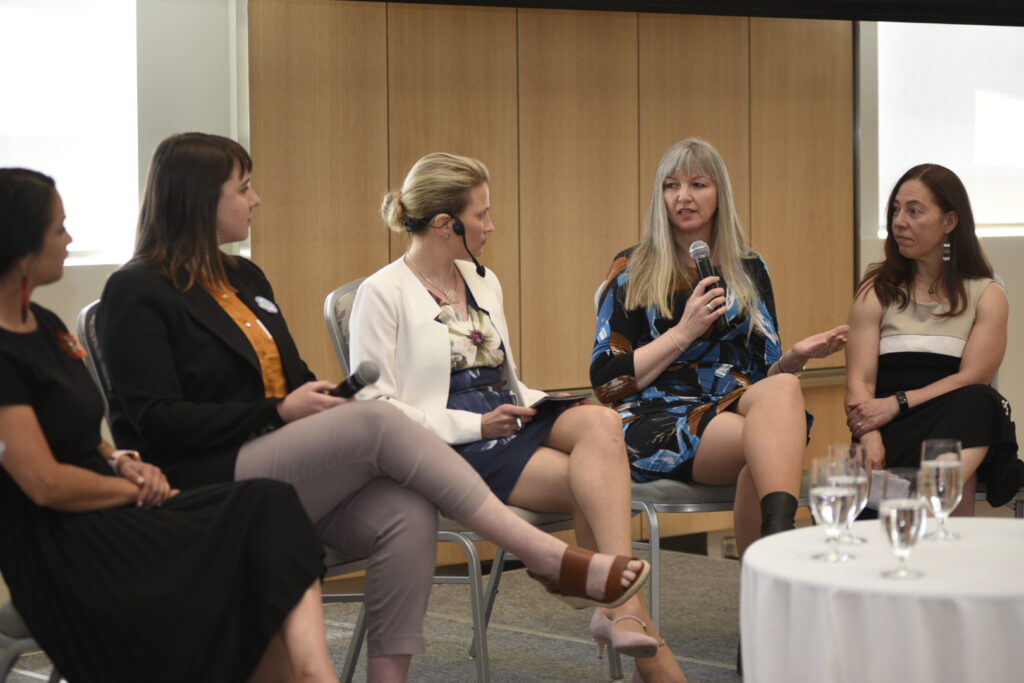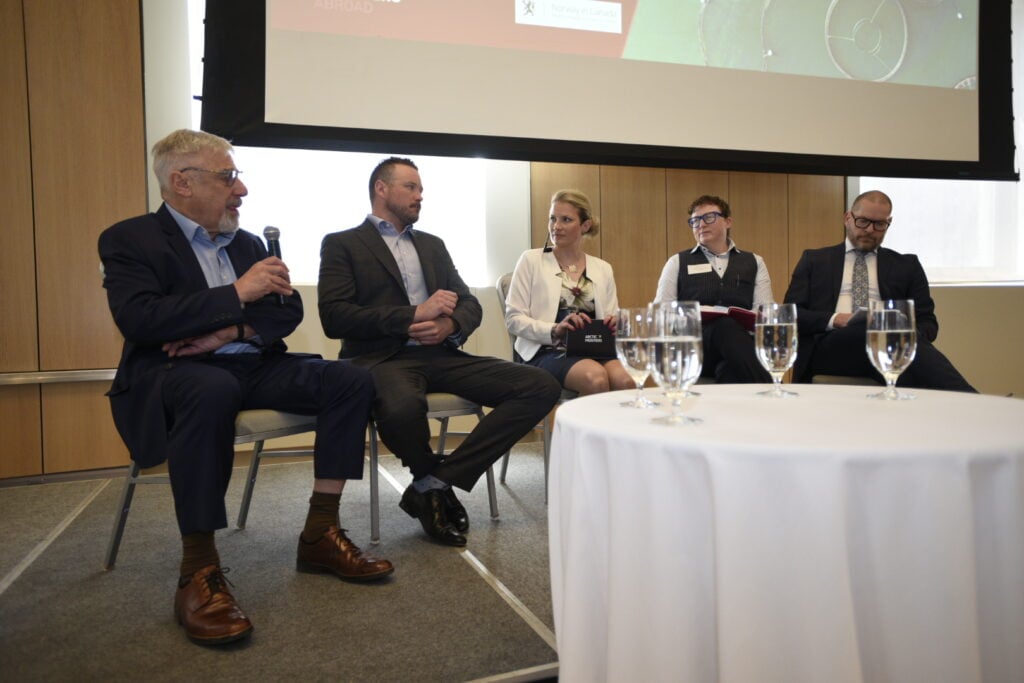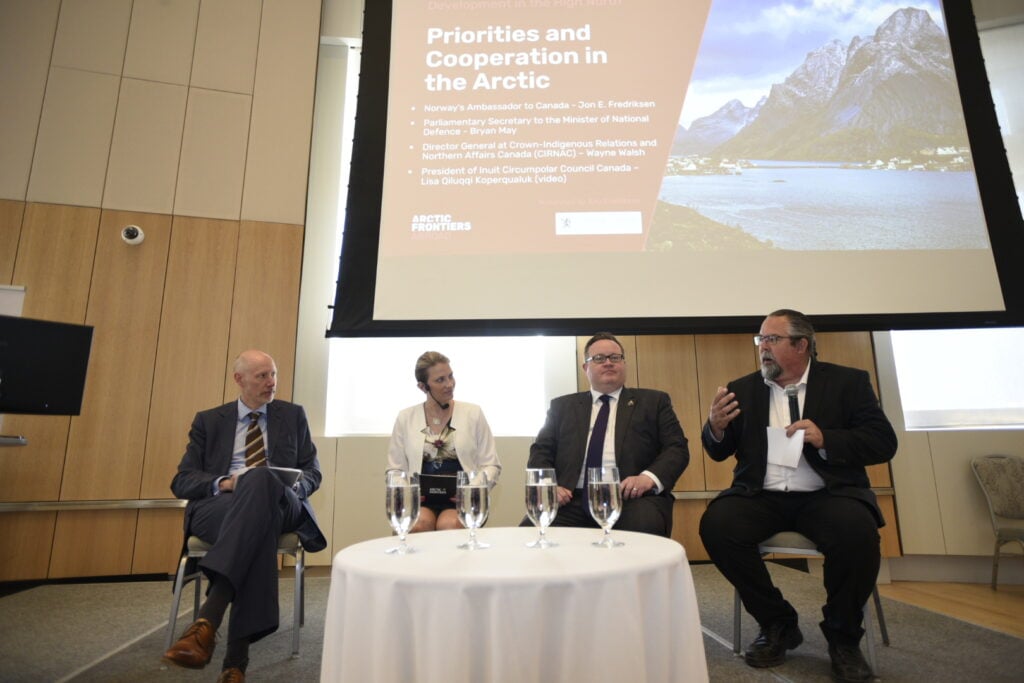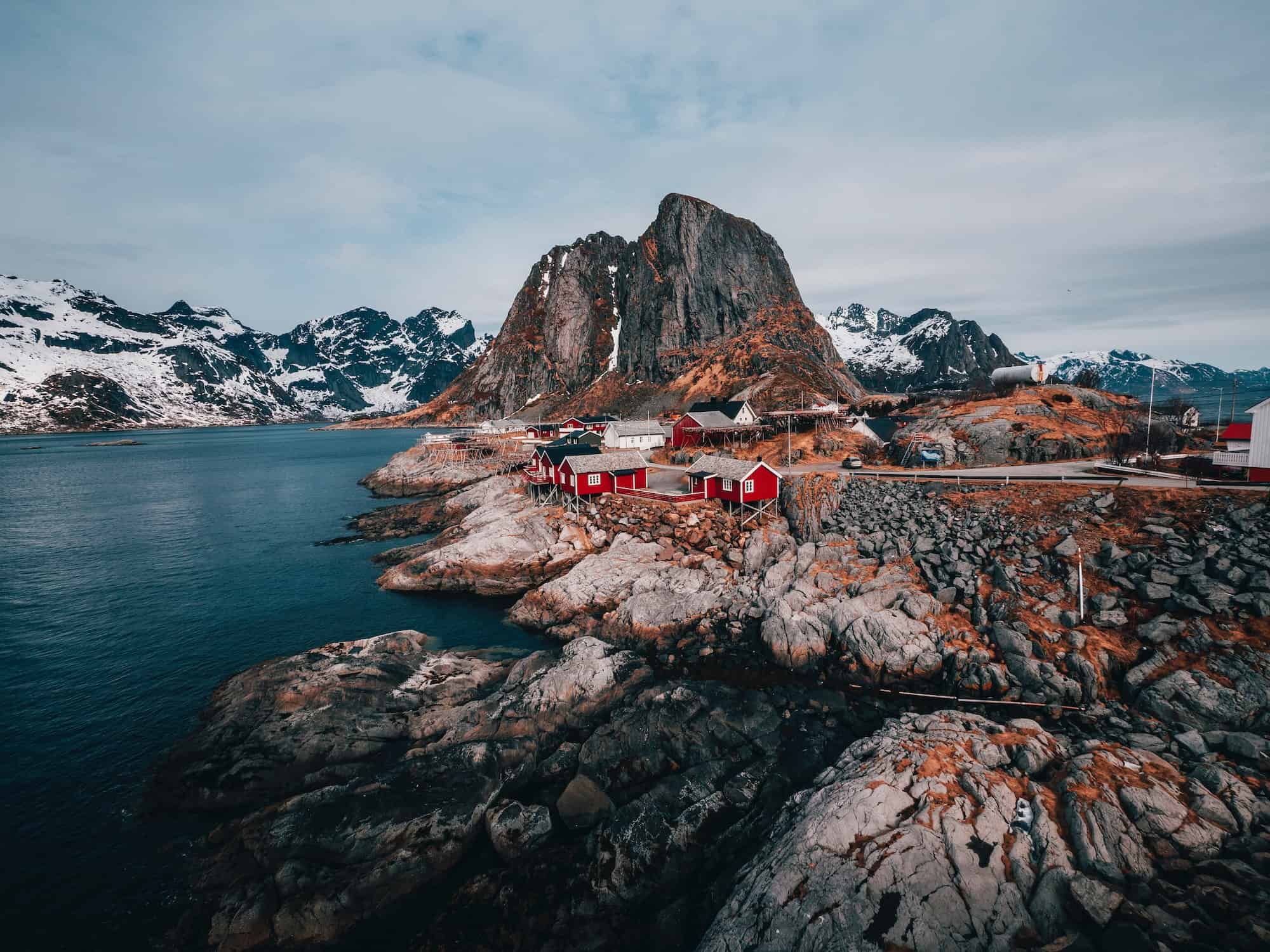
Norway, Canada and Sustainable Development: Science, Policy, Infrastructure, Business and Blue Economy
Canada and Norway have the longest and second longest coastlines in the world, with a combined length of approximately 344,000 kilometres. Both countries have unutilized potential for ocean growth, and both have strong policy, research and business developments in the blue economy sector.
Arctic Frontiers and the Royal Norwegian Embassy in Ottawa hosted two days of discussions on policy, science, infrastructure, and business in the High North, with a specific focus on Canada and Norway. This event promoted and highlighted further cooperation between the two High North regions, as well as provided a platform for exchanging information and recognising emerging issues in the policy, science and business fields.
On Wednesday 10th May 2023, we were in Ottawa to host an evening reception, bringing together young professionals from across the North Atlantic.
On the morning of Thursday 11th May 2023, we held panel discussions, with a focus on the Norwegian Chairship of the Arctic Council, and policy decisions and challenges in numerous sectors of Blue Economy.
We then travelled to Montreal on Friday 12th May 2023, for discussions focusing on scientific and research developments in the field of Blue Economy, and the businesses which support these developments, such as data services and infrastructure.
Read more about the seminar on our highlight page.
Blue economy refers to maximising the economic value of the oceans with sustainability and preservation at the centre of the activities. A blue economy can provide additional effects including social development, improved well-being and biodiversity protection. Additionally, much of the funding and research is going into small and medium sized enterprises (SME) and startups, and blue economy has a huge potential in the Arctic. A sustainable ocean and blue economy benefit many sectors including aquaculture, infrastructure, technology, Indigenous and Traditional livelihoods, transport, energy, security, research and education.
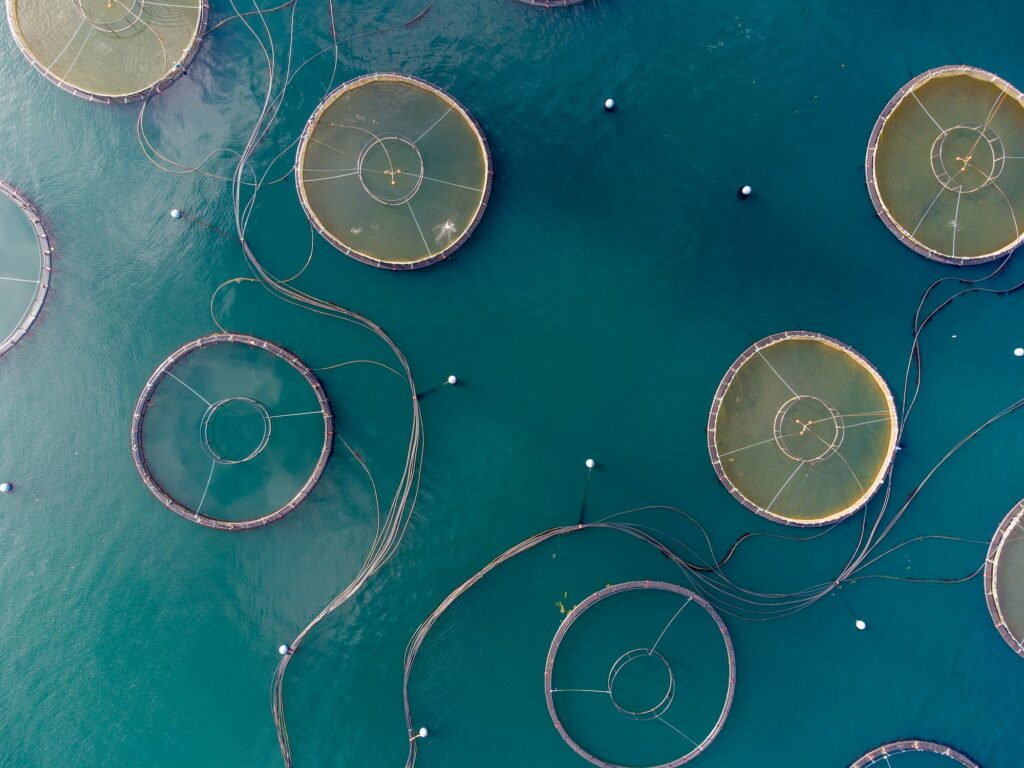
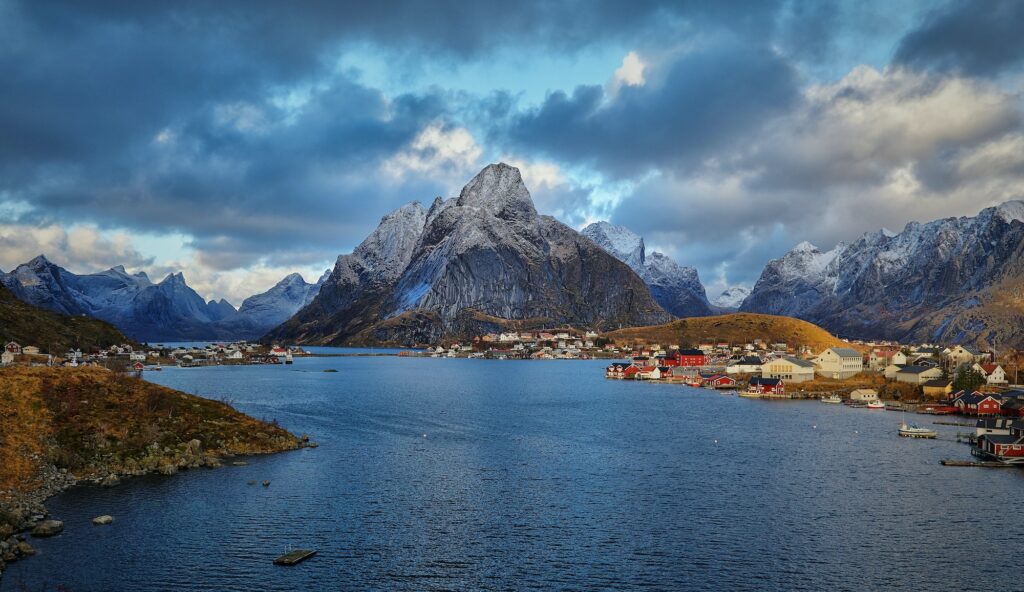
Canada and Norway note their close relationship concerning sustainable management of marine resources, as well as technological knowledge and biological research in their 2008 Memorandum of Understanding on fisheries and oceans. A number of additional agreements and bilateral projects have produced a strong relationship between the two North Atlantic nations, and produced excellence in the fields of ocean technology, innovation and growth.
Program
Day 1: Ottawa – Policy, Ocean Development and Innovation. May 11th.
Panel 1: Arctic Council Priorities – A Fireside Chat
Norway will take over the Arctic Council Chairship on May 11th and the first fireside chat with Norway’s Ambassador to Canada, Jon E. Fredriksen and a virtual introduction from President Lisa Qiluqqi Koperqualuk of Inuit Circumpolar Council, will cover the Norwegian Chairmanship priorities.
Panel 2A: Industry and Innovation – Blue Economy and Ocean Development
The second panel will focus on ocean policy developments to support economic growth and protection of the oceans. What data and knowledge gaps still exist which could support decision-making? In some areas, businesses are leading the way for sustainable economic developments, ahead of science and policy. Both small startups and large enterprises are shifting focus to possibilities in the ocean. But can policy changes foster or limit innovation in the blue economy sector?
Panel 2B: Industry and Innovation – Land-Based Opportunities
This panel will focus on land-based opportunities. The Canadian arctic coastline is less accessible and many economic developments are focused on land in the High North. But what does this mean for local communities and Indigenous populations which live there? Are cluster companies providing innovative tools and support for development in the Arctic and what impact does policy have on technology, society and opportunities?
All panels will be moderated discussions with opportunities for audience questions. The panels will be moderated by Anu Fredrikson, ED of Arctic Frontiers.
Day 2: Montreal – Science, Sustainability and High North Development. May 12th.
Panel 1: Oceans, climate and biodiversity – Research and Infrastructure
Both Norway and Canada are dedicated to creating new knowledge that can be used to advance scientific understanding and benefit the people living and working in the High North and Arctic. The first panel gather experts from the latest research in oceans, climate and biodiversity, and discuss science infrastructure services. How are science and infrastructure tightly linked? What more can be done to harness the power of the Arctic and North Atlantic Oceans?
Panel 2: Research development for business opportunities
The second panel will focus on business opportunities and sustainable development of the High North. How can northern communities and Indigenous groups become better involved in advancing research and innovation? Research can be quickly applied and transferred to operations. In some areas, businesses are leading the way for sustainable economic developments, ahead of science and policy. What are some of the newest opportunities for development and what research is needed to support that? Opportunities and challenges that both Norway and Canada face in this sector will also be discussed.
The panels will be moderated discussions with opportunities for questions from the audience.
Photos from the event
Speakers
- Norway’s Ambassador to Canada Jon E. Fredriksen
- Lisa Qiluqqi Koperqualuk, Inuit Circumpolar Council (ICC) President (video participation)
- Bill Karp, ICES President
- David Kiemele, Managing Director, Cermaq Canada
- Professor Jackie Dawson, University of Ottawa and Director, ArcticNet
- Martin Skedsmo, Key account manager Earth Observation, KSAT
- Kimberley Lavoie, Director General, NRCan
- Monica Paulsen, Cluster Manager, Arctic Cluster Team
- Liz Peredun, Director of Yukon Women in Tech and Trades
- Dr Amanda Savoie, Director of The Centre for Arctic Knowledge and Exploration
- Professor Philippe Archambault, Scientific Director, ArcticNet
- Dr Bruno Tremblay, Researcher, McGill University
- Robert Quinn, Director of Geointelligence, MDA space
- Audrey Lapenna, Technology Leadership Manager, Canada’s Ocean Supercluster
- Jessica Hall, PhD Candidate, University of Tromsø & University of Saskatchewan
- Professor Bjørn Tore Hjertaker, University of Bergen, Ocean Technology and Innovation
- Dr George Wenzel, Researcher, McGill University
- Michal Nilssen, Founder and CEO, Norskin
